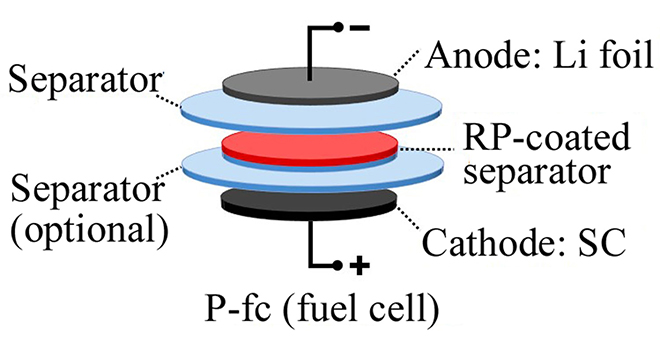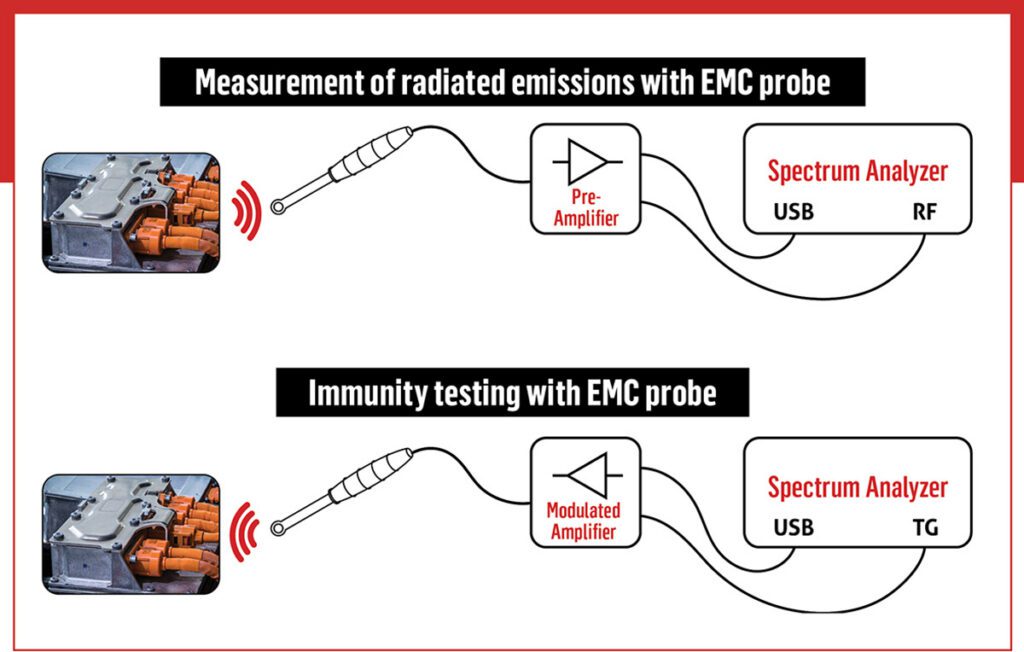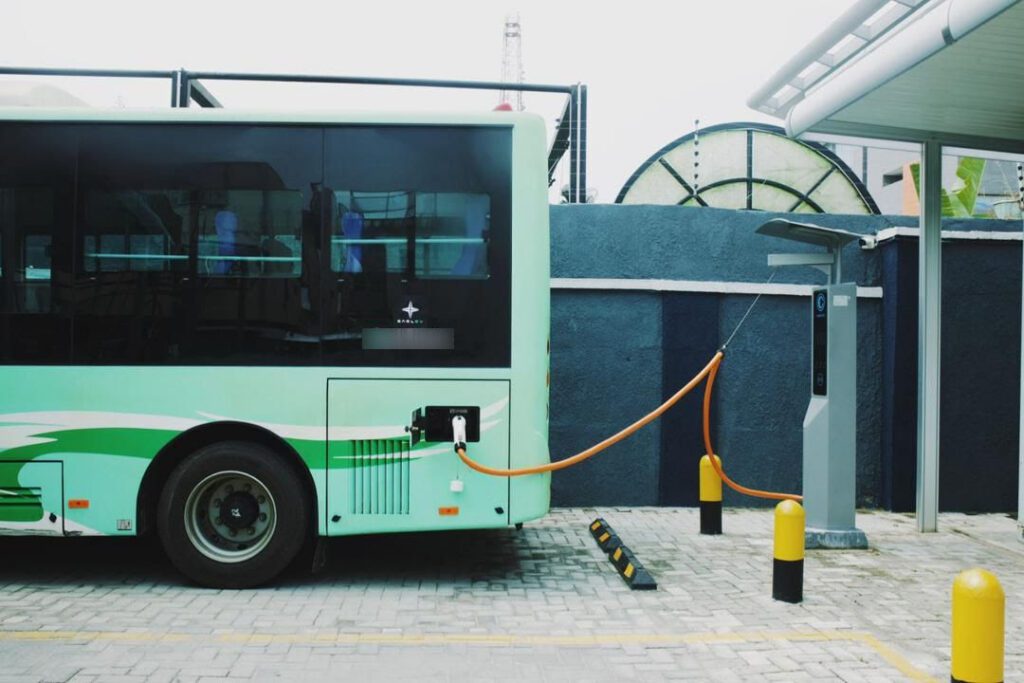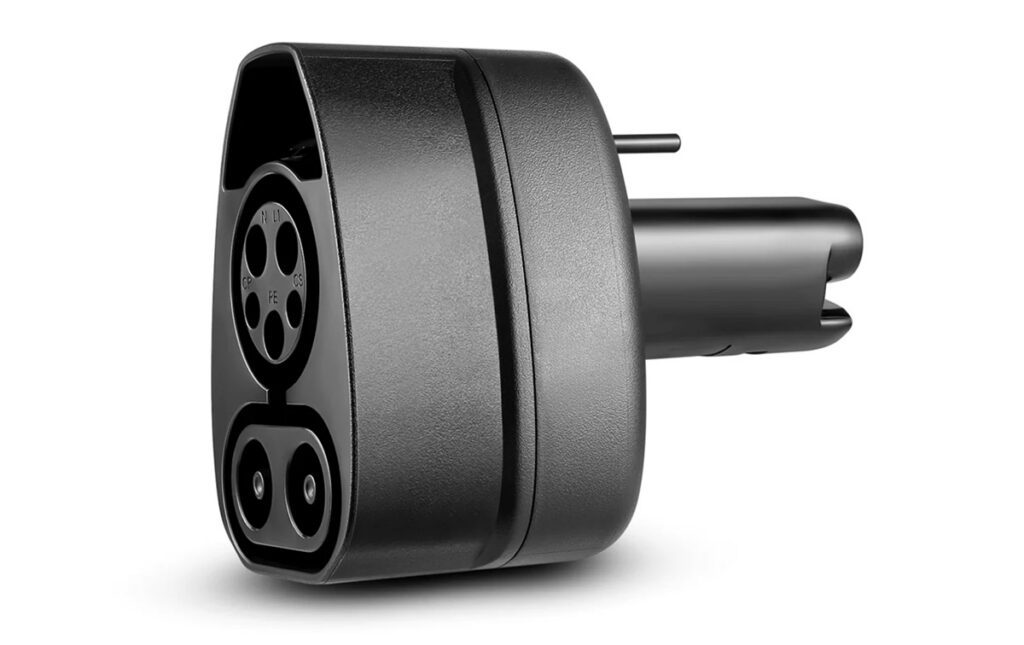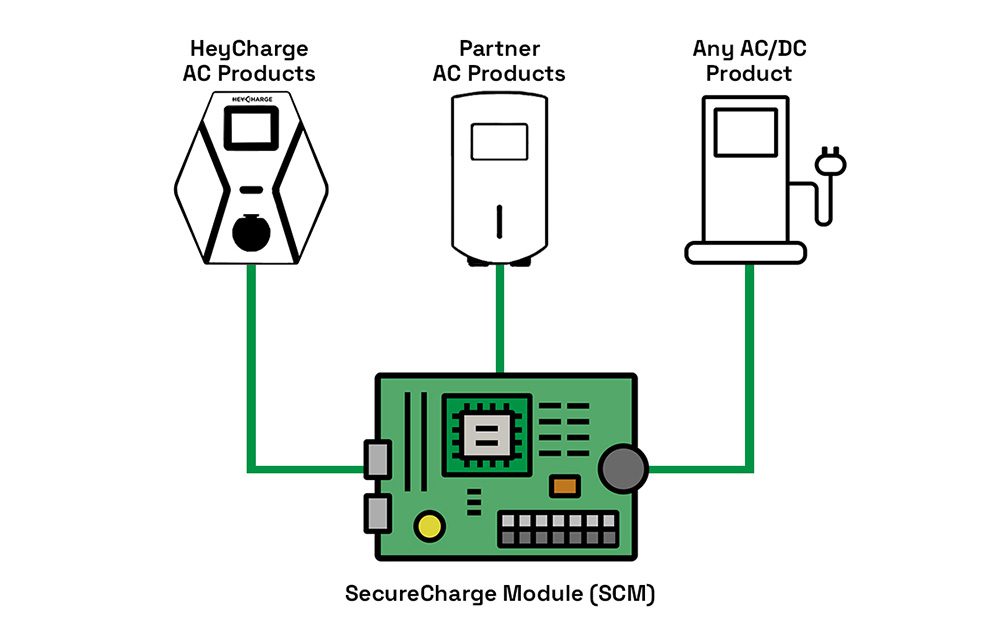Rice University scientists have found that adding a layer of red phosphorus to separators in lithium metal batteries can signal when damaging dendrites threaten to create a short circuit.
Rice University chemist James Tour made lithium metal test cells with a coat of red phosphorus on the separator, which keeps the anode and cathode electrodes separate. When the phosphorus detects the formation of dendrites – protrusions of lithium that can cause batteries to fail – it can signal to the battery management system to shut down charging.
Lithium metal anodes have the potential for faster charging and greater energy density, but charging lithium-infused anodes tends to form dendrites that can cause short-circuiting and possibly fire or an explosion if they reach the cathode. However, when a dendrite reaches Rice lab’s red phosphorus-coated separator, the battery’s charging voltage changes, alerting the battery management system to stop charging.
Unlike other proposed dendrite detectors, Rice’s strategy doesn’t require a third electrode. “Manufacturing batteries with a third electrode is very hard,” Tour said. “We propose a static layer that gives a spike in the voltage while the battery is charging. That spike is a signal to shut it down.”
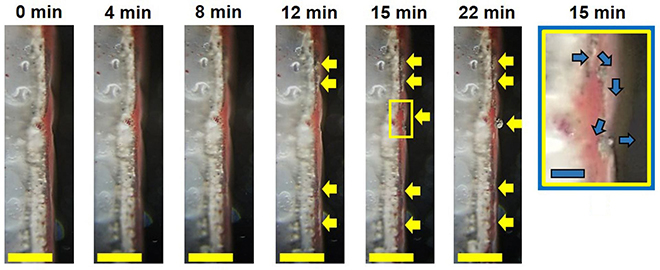
Images of a half-cell lithium metal battery show dendrites approaching a red phosphorus separator. The separator delivers a signal to the battery’s electronics to shut down when dendrites threaten to create a short circuit. The discovery by scientists at Rice University could help make lithium batteries safer. Courtesy of the Tour Group
In experiments on test batteries, the red phosphorus layer had no significant effect on performance. The researchers built a transparent test cell with an electrolyte known to accelerate aging of the cathode and encourage dendrite growth. With an ordinary separator, researchers saw the dendrites contact and penetrate the separator with no change in voltage, a situation that would lead a normal battery to fail. But with the red phosphorus layer, they observed a sharp drop in voltage when the dendrites contacted the separator.
Last year, the Rice lab introduced carbon nanotube films that appeared to completely halt dendrite growth from lithium metal anodes.
“By combining the two recent advances, the growth of lithium dendrites can be mitigated, and there is an internal insurance policy that the battery will shut down in the unlikely event that even a single dendrite will start to grow toward the cathode,” Tour said. “Our work provides a further guarantee for battery safety. We’re proposing another layer of protection that should be simple to implement.”
Source: Rice University







